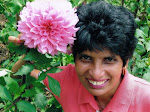We celebrated Global Oneness day on October 24th. It made me to reflect on my experience and actions. What does Oneness really means to me? How am I in Oneness with all of myself? There are several different definitions for Oneness and the one I like is by the Global Project: “Oneness is a fundamental, creative force present in all life, empowered when individual consciousness recognizes and aligns with it.”
When we experience Oneness, we feel in our gut and heart that we are part of something beyond ourselves, that there is harmony and meaning in life, and that every human being and every aspect of existence is uniquely valuable. We live Oneness through respect, compassion, cooperation, and creativity, which naturally support the most fundamental needs of life.
To me Oneness is being in harmony with all the aspects of oneself and to embody the divine being that each one of us are. To realize Oneness I want to live it in my day to day life. Oneness is accepting what is, in moments and situations that I find difficult to accept. Being in Oneness helps me authentically bring Oneness in the world. It is embracing my humanness and the humanness of others in compassion.
Here are simple ways of moving back into Oneness when one feels not in harmony. Take a deep breath and be in the present moment and acknowledge what is. Accept what is without judgment and in compassion and be kind to yourself. Be open and grateful to the experience and lesson it is presenting you instead of getting into fixing or trying to push it down. Oneness is loving what is and choosing to be in harmony with greater whole that we all are part of.
To me Oneness is being in harmony with all the aspects of oneself and to embody the divine being that each one of us are. To realize Oneness I want to live it in my day to day life. Oneness is accepting what is, in moments and situations that I find difficult to accept. Being in Oneness helps me authentically bring Oneness in the world. It is embracing my humanness and the humanness of others in compassion.
Here are simple ways of moving back into Oneness when one feels not in harmony. Take a deep breath and be in the present moment and acknowledge what is. Accept what is without judgment and in compassion and be kind to yourself. Be open and grateful to the experience and lesson it is presenting you instead of getting into fixing or trying to push it down. Oneness is loving what is and choosing to be in harmony with greater whole that we all are part of.





